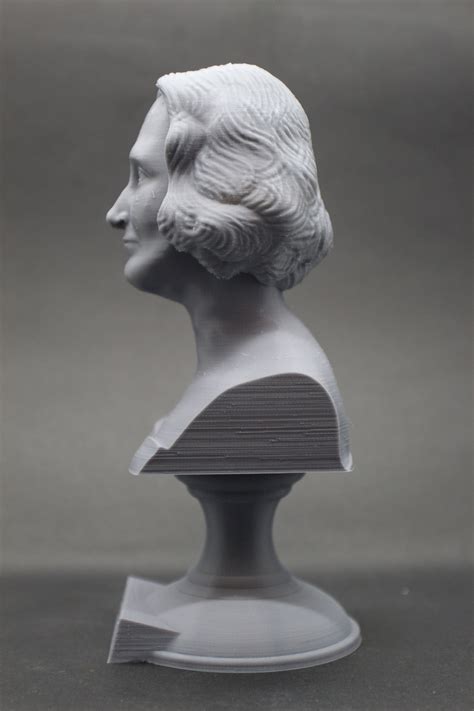A Quote by Mary Collyer
The most savage and voracious animal never kills to increase his wealth, or open a way to grandeur. It slays to satisfy his hunger, or in a natural defense of his own life, or of those whom he is prompted by instinct to preserve.
Related Quotes
He said that man’s heart was the only bad heart in the animal kingdom; that man was the only animal capable of feeling malice, envy, vindictiveness, revengefulness, hatred, selfishness, the only animal that loves drunkenness, almost the only animal that could endure personal uncleanliness and a filthy habitation, the sole animal in whom was fully developed the base instinct called patriotism, the sole animal that robs, persecutes, oppresses and kills members of his own tribe, the sole animal that steals and enslaves the members of any tribe.
The marriage tie becomes possessed of a history and takes to itself traditions. This history and these traditions form a great fund, to which changing conditions and growing imagination constantly add. And the traditions, more especially, bear heavily upon the individual, overmastering his natural expression of the love instinct and forcing him to an artificial expression of that love instinct. He loves, not as his savage forbears loved, but as his group loves.
The individual man, in introspecting the fact of his own consciousness, also discovers the primordial natural fact of his freedom: his freedom to choose, his freedom to use or not use his reason about any given subject. In short, the natural fact of his "free will." He also discovers the natural fact of his mind's command over his body and its actions: that is, of his natural ownership over his self.
Even if man's hunger and thirst and his sexual strivings are completely satisfied, 'he' is not satisfied. In contrast to the animal his most compelling problems are not solved then, they only begin. He strives for power or for love, or for destruction, he risks his life for religious, for political, for humanistic ideals, and these strivings are what constitutes and characterizes the peculiarity of human life.
Of all the animal creations of God, main is the only animal who has been created in order that he may know his Maker. Man's aim is life is not therefore to add from day to day to his material prospects and to his material possessions, but his predominant calling is, from day to day to come nearer to his own Maker.
Man is at his furthest remove from the animal as a child, his intellect most human. With his fifteenth year and puberty he comes astep closer to the animal; with the sense of possessions of his thirties (the median line between laziness and greediness), still another step. In his sixtieth year of life he frequently loses his modesty as well, then the septuagenarian steps up to us as a completely unmasked beast: one need only look at the eyes and the teeth.
How strange and foolish is man. He looses his health in gaining wealth. Then to regain health he wastes his wealth. He ruins is present while worrying about his future - but weeps in the future by recalling his past. He lives as though death shall never come to him - but dies in a way as if he were never born.
Every man should write a brief history of his life: his parentage, his birth, his religion, when he was baptized and by whom, when ordained, what to, and by whom-give a brief sketch of all his missions and of all his official acts and the dealings of God with him. Then if he were to die and the historians wished to publish his history, they would have something to go by.
Man is the only animal that deals in that atrocity of atrocities War. He is the only one that gathers his brethren about him and goes forth in cold blood and calm pulse to exterminate his kind. He is the only animal that for sordid wages will march out... and help to slaughter strangers of his own species who have done him no harm and with whom he has no quarrel.... And in the intervals between campaigns he washes the blood off his hands and works for the universal brotherhood of man with his mouth.
You may give a piece of bread to a hungry person, and when the cravings of hunger return some one else must administer to his wants again; to put that person in a position to earn his own subsistence is true charity; in this way you direct his feet in the path of true independence, he is then only dependent on his own exertions and on the blessings of his God.






































